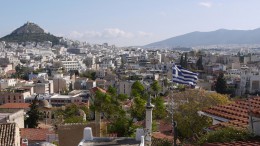Greek government: The moment of truth is inexorably approaching
March 20, 2015 | By Wolfango Piccoli via MacroPolis | The Greek government faces a dire financial situation in the coming weeks, especially as lenders are unlikely to relent on the conditions of last month’s loan extension.









